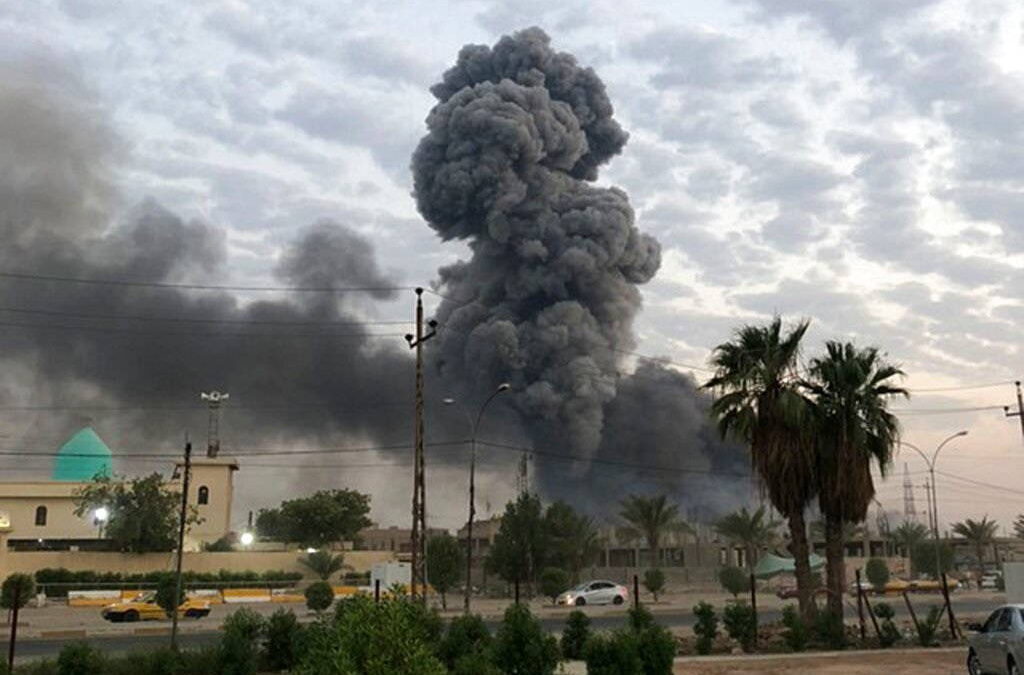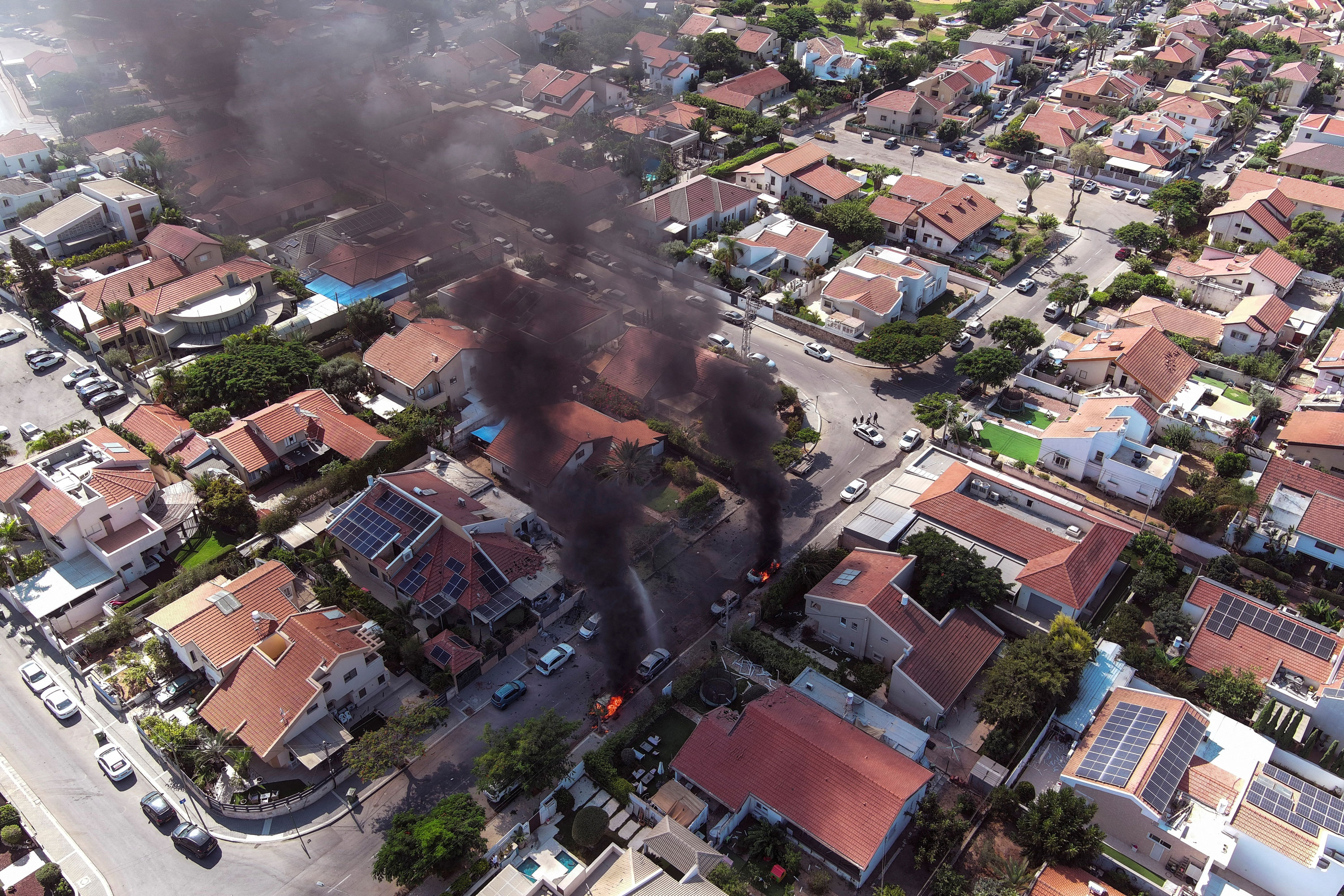Historical Context

The relationship between Iran and Israel has been marked by deep-seated tensions and animosity, rooted in historical, religious, and ideological factors. These factors have fueled a long-standing conflict, leading to numerous incidents and attacks.
Religious and Ideological Factors
The conflict between Iran and Israel is deeply intertwined with religious and ideological differences. Iran, a predominantly Shia Muslim nation, views Israel as an illegitimate entity established on land that rightfully belongs to Palestinians. Israel, a Jewish state, sees itself as a bulwark against regional threats, including Iran’s ambitions for regional dominance.
Current Situation and Motivations: Iran Attack Israel Israeli

The current political and military landscape in the Middle East is marked by heightened tensions, with Iran and Israel locked in a complex and multifaceted conflict. This dynamic is driven by a combination of historical grievances, ideological differences, and strategic interests. Understanding the motivations of the key players in this conflict is crucial to comprehending the potential implications of Iranian attacks on Israeli interests.
Key Players and Motivations
The conflict between Iran and Israel involves numerous actors, each with their own motivations and objectives.
- Iran: Iran’s motivations for engaging in hostile activities against Israel are rooted in its long-standing support for Palestinian groups and its opposition to Israel’s existence. Iran views Israel as a threat to its regional interests and a proxy of the United States. Additionally, Iran seeks to establish itself as the dominant power in the Middle East, and Israel is seen as an obstacle to this ambition.
- Israel: Israel perceives Iran as a significant threat to its security, given Iran’s nuclear program, its support for Hezbollah and Hamas, and its stated intention to destroy Israel. Israel has launched numerous strikes against Iranian targets in Syria and elsewhere, aiming to prevent Iran from establishing a permanent military presence in the region and to disrupt its nuclear ambitions.
- Hezbollah: Hezbollah, a Lebanese Shiite militant group, is a key ally of Iran. Hezbollah has a strong military presence in Lebanon and has been involved in numerous conflicts with Israel. The group receives significant financial and military support from Iran and is committed to the destruction of Israel.
- Hamas: Hamas, the Palestinian Islamist group that controls the Gaza Strip, also receives support from Iran. Hamas has engaged in numerous armed conflicts with Israel and is committed to the destruction of the Jewish state.
- United States: The United States is a key ally of Israel and has provided significant military and financial support to the country. The US has also imposed sanctions on Iran and has taken a hard line against Iran’s nuclear program. However, the US has also sought to avoid a direct military confrontation with Iran.
- Russia: Russia has maintained close ties with Iran and has been a key player in the Syrian civil war. Russia has also been critical of US and Israeli actions in the region.
Potential Implications of Iranian Attacks on Israeli Interests
Iranian attacks on Israeli interests could have a wide range of implications, both domestically and internationally.
- Escalation of Conflict: Iranian attacks on Israeli targets could trigger a wider conflict, potentially involving regional powers like Saudi Arabia and the United States.
- Increased Instability: The conflict could further destabilize the Middle East, leading to increased violence and humanitarian crises.
- Economic Impact: The conflict could have a significant impact on the economies of the region, disrupting trade and tourism.
- Nuclear Concerns: The conflict could also increase concerns about Iran’s nuclear program, as Iran could respond to Israeli attacks with a nuclear strike.
International Response and Implications

The Iranian attacks on Israel have triggered a wave of international responses, with major world powers expressing concerns and urging de-escalation. The potential consequences of escalating tensions on regional stability are significant, prompting international organizations to play a crucial role in mediating the conflict.
Responses of Major World Powers, Iran attack israel israeli
The international community has responded with a mix of condemnation, calls for restraint, and diplomatic efforts to prevent further escalation.
- The United States has condemned the Iranian attacks and expressed unwavering support for Israel’s right to defend itself. The US has also imposed sanctions on Iranian entities involved in the attacks.
- The European Union has called for an end to the violence and urged both sides to exercise restraint. The EU has also expressed concern about the potential for the conflict to destabilize the region.
- Russia has called for a de-escalation of tensions and has offered to mediate between Iran and Israel. Russia has also expressed concerns about the potential for the conflict to escalate into a wider regional war.
- China has called for calm and restraint and has urged both sides to resolve their differences through dialogue. China has also expressed concerns about the potential for the conflict to disrupt regional stability.
Potential Consequences of Escalating Tensions
The escalating tensions between Iran and Israel pose a significant threat to regional stability.
- The conflict could easily spill over into neighboring countries, potentially leading to a wider regional war.
- The conflict could also lead to a surge in terrorist attacks in the region, as extremist groups seek to exploit the situation.
- The conflict could also disrupt global energy markets, as Iran is a major oil producer.
Role of International Organizations
International organizations, such as the United Nations and the European Union, have a crucial role to play in mediating the conflict and preventing further escalation.
- The UN Security Council has called for an end to the violence and has urged both sides to exercise restraint. The UN has also deployed observers to the region to monitor the situation.
- The EU has also played an active role in mediating the conflict. The EU has offered to host talks between Iran and Israel and has provided financial assistance to countries in the region affected by the conflict.
Iran attack israel israeli – The relationship between Iran and Israel has been fraught with tension for decades, marked by a history of proxy conflicts and political disagreements. A key point of contention has been Iran’s support for militant groups in the region, which has led to attacks on Israeli targets.
This complex dynamic, rooted in deep ideological differences, has fueled a constant undercurrent of conflict, with both countries engaging in a delicate balancing act of deterrence and escalation. To understand the intricacies of this ongoing conflict, explore the history of tensions between Iran and Israel here.
The recent attack on Israel by Iran has sparked global concern, highlighting the delicate balance of power in the Middle East. While international attention focuses on this geopolitical conflict, it’s a reminder that even amidst international tension, there are individuals like andrew benintendi , a talented baseball player, pursuing their dreams.
The complexities of the Israeli-Iranian conflict are vast, but it’s important to acknowledge the human stories that exist beyond the headlines.